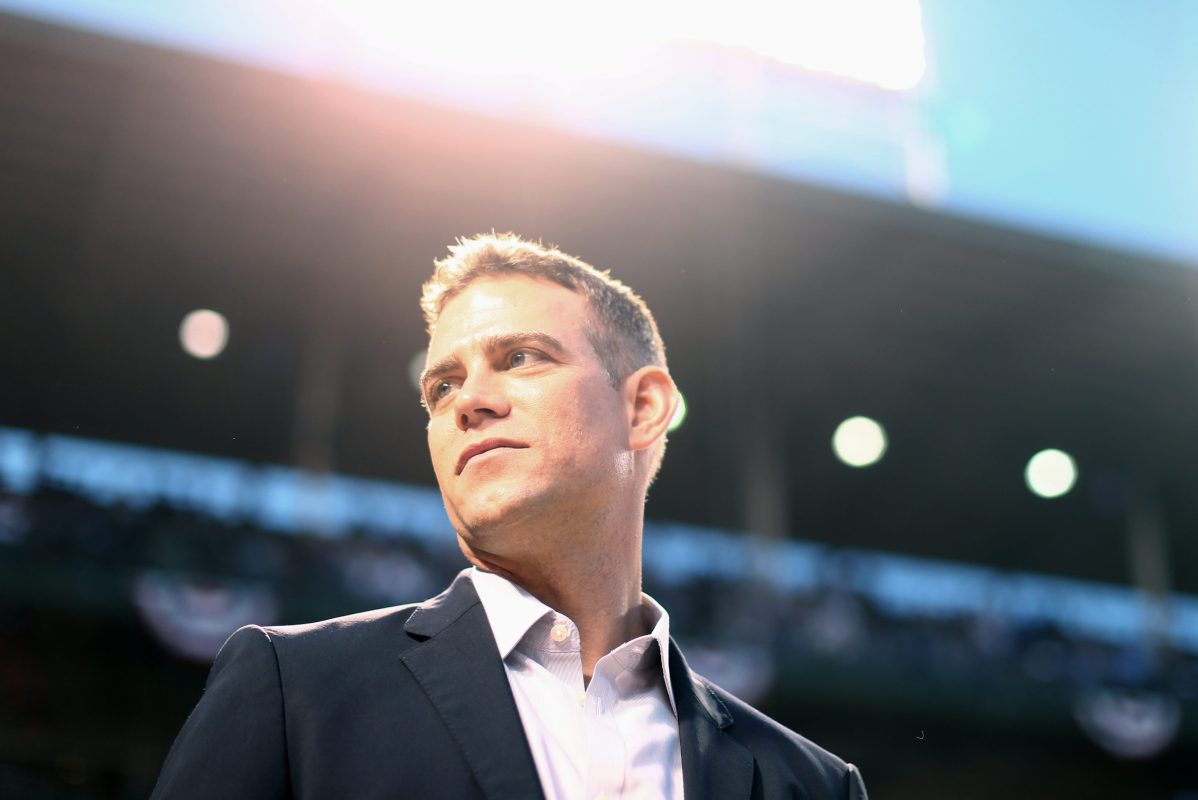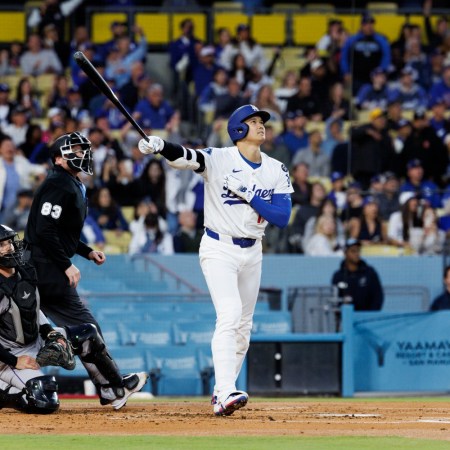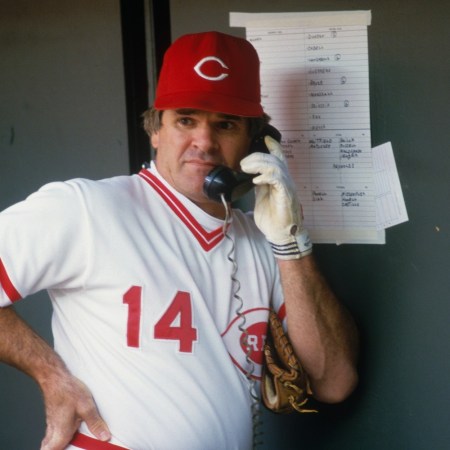Theo Epstein, the archetype of the Ivy League-grad general manager that is currently en vogue in Major League Baseball, simultaneously used analytics and proved their worth while helping to build championship rosters as an executive for the Boston Red Sox and Chicago Cubs.
That led to other organizations mimicking much of what Epstein did, leading to an increase in the use of the shift, more walks and strikeouts, and fewer balls in play. All of those things help win baseball games, but they don’t make them fun to watch.
Now working in an advisory role for MLB as a “special consultant,” 48-year-old Epstein is tasked with helping to restore the game of baseball to its former glory and make people want to watch it again as they once did. Speaking on The Athletic Baseball Show, Epstein shared a number of ideas about how to save the game that he helped usher into its current state. Those ideas include an instant challenge of ball/strike calls, a 14-second pitch clock, catchers calling pitches on a wrist pad, a lower and wider strike zone, and a new rule that would require outfielders to play 15 to 25 feet shallower than they typically do now. (More on all of these ideas here.)
“When we grew up, you could watch a game and you’d see a ball in play every couple of minutes. And now a fan has to sit there for well over four minutes just to see a ball put in play,” Epstein said. “So when I hear people say…‘Don’t change the game. Leave it exactly the same,’ I totally get where that’s coming from. There are elements of the game I don’t ever want to touch, or I get uneasy when people start talking about changing it. But I think I fall into that trap — and maybe many of us do — where we’re focused on the change itself, we’re focused on the rule itself, when we should really be focusing on: What is this going to mean for the action on the field? What are the outcomes? What are the impacts of the rule?”
As an example, Epstein brought up the NBA and the implementation of the shot clock.
“When they instituted the shot clock, I doubt there was anyone saying, ‘This is great. I love to go to a basketball game where I can watch the clock count down and my attention is going to be diverted from the court,’” he said. “But what it created was free-flowing, faster-paced offense, with a lot more action, a lot more back and forth in the game, a lot more speed and rhythm to the game.” Baseball needs all of that — and then some.
The next time someone complains about a change in baseball or says “This is how we’ve done it for more than 100 years” regarding the game, ask them to hand over their phone. Perhaps they’ll get the point. Epstein does.
The Charge will help you move better, think clearer and stay in the game longer. Subscribe to our wellness newsletter today.



















